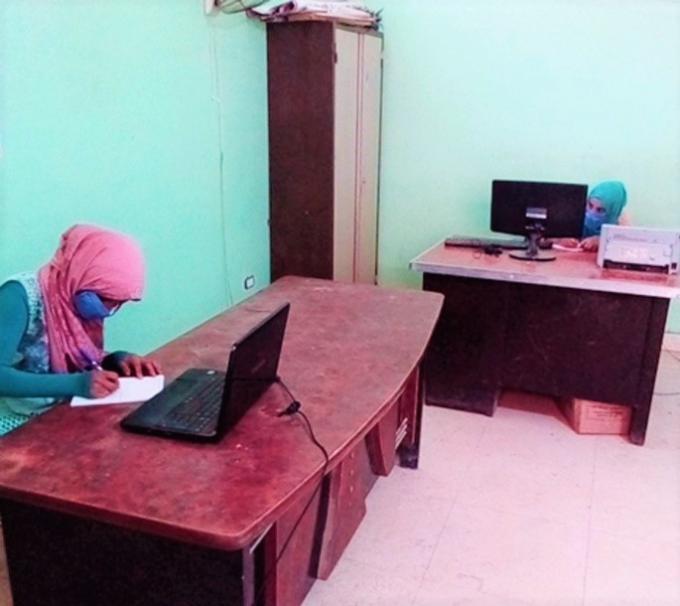International literacy day – Literacy in a digital world

Today we mark International Literacy Day (ILD) 2020, with a focus on literacy teaching and learning in the context of COVID-19 and beyond. Throughout the pandemic, teaching and learning strategies were reimagined to minimize the impact of school closures. Teachers faced changes to their working conditions, and technology became the key player over the past few months. So what was the situation like for teacher and students in Egypt?
After the disruption of schools in the country, the Ministry of Education issued a number of decisions, including that primary and preparatory students would submit research papers in lieu of exams, for their end of year evaluation.
The research papers required resources such as internet access and textbooks. The majority of small villages in Upper Egypt lack Internet connectivity, and many families do not own smart phones or computers to connect to. Risks of infection are also higher if families decided to send their children to Internet cafes, where people can pay an hourly rate to access computers with an internet connection. Many children living in these villages are unaware of how to deal with technological tools that are necessary in order to produce a research paper, due to the scarcity of such equipment in small villages.
“I panicked when I heard that I had to submit a research paper to pass to the next grade. I don’t have a computer at home. I share internet access with my neighbors so connection is very weak. I was lost and my parents felt helpless,” 11-year-old Hala* from Manfalut, Assiut said.
“I heard about brokers selling prepared research papers to students in many villages nearby,” said Farah*, a primary school teacher. She added that other pupils could not receive sufficient support from their parents and this was when she decided to meet with her students at the school playground, while taking all hygienic precautions. “I divided them into groups and set topics for each team. I then explained the research, provided them with tablets, let the children collect the information they need from websites and books, and sat with them on another day to finish writing the papers.” Faten is one of many teachers who provided similar help to their students, with the support and supervision of Save the Children’s Literate Village project.
Save the Children has been working closely with the Ministry of Education and community schools across Egypt since the outbreak of Covid-19 to support students and teachers adjust to remote learning. This has been done through awareness-raising messages on WhatsApp groups and distribution of education kits to Egyptian and refugee children and families. In addition, we provided training to peer educators and teachers on how to use online remote learning tools.
“We really enjoyed designing the covers of their research papers together,” added Sara*, a sixth-grade teacher . “I could sense the happiness and excitement on their faces. They looked much more relaxed than when I first met them after the Ministry’s decision to write research papers was first issued.”
“My friends and I submitted our papers on time. We were relieved because we couldn’t imagine that we would receive this much support from our teachers and parents in such a short and hectic time. We are now waiting for our results and hopefully we will pass on to the next grade,” 13-year-old Adam* explained.
*All names have been changed to protect their privacy.
 Egypt
Egypt